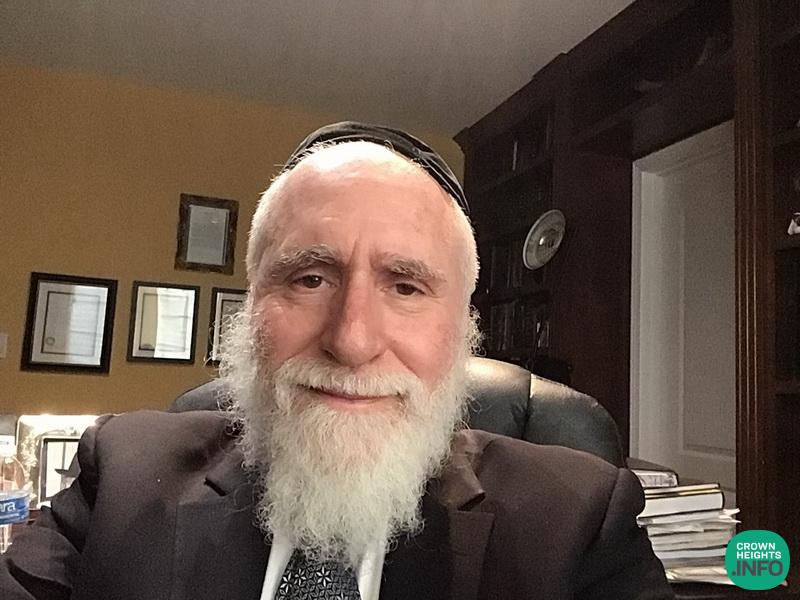
Terrible News and Intense Reactions
The Jewish world has yearned and waited. We prayed and we waited. We cried and were sad and in pain, while we waited. Our brethren, Jewish men, women and children taken to the mayim sh’ain la’hem sof of serpentine tunnels and hidden chambers, unheard of, unseeable and unreachable. The only thing within reach was our siddurim and Tehillim and so many, many of us turned to Shomayim with hope against hope, and now this. There is a word for this in English. Crestfallen. For some of us, our religious honor as Benei Yisroel has fallen. We felt helpless before this tragic turn and feel isolated now. The rest of humanity or whatever term we might use to represent those who abandoned us during this time, will move on. Meanwhile, it is very natural during unnatural times to hurt, to ache and to be intensely saddened.
The realization that we have lost our precious ones who suffered for 500 days and more will dawn on some of us sooner or later. Those small, smiling faces will remain seared in our visual memory for months to come as our heart grapples with their fate, and with the future of those who loved them and agonized about them. This is a turn of events which we will not be able to conceal from our families because it is widely broadcast and spoken about. It is even celebrated among some of the manic mob who encouraged terror and genocide, and who have applauded each atrocity as if it were entertainment. For some, it was little more than another morbid game and for others, it was the epitome of their religious zeal, among those who believe in driving us, or voting us, into the sea and worse.
What we will say to our inquisitive and to our confused children will become clearer only after we, adults, speak to each other. It is fully expected that Jews will have many reactions. Some will sense the intensity deep within their body, whether as nausea, or tension, or disturbed sleep or actual pains. Some will feel this deep within the emotions, whether as depressed mood, sudden irritability, restless anxiety or fear. Others will harbor their reactions in the mind, with thoughts, worry, images, memory activation or deactivation and disrupted concentration. A few will experience behavior changes. As adults we need to be mindful of all of those subjective states, identify the experiences within each part of ourselves, and select a supportive person whom you care about and who cares about you. Speak out and talk through your reactions. They are yours, so know what they are. Listen to those who open up to you with caring, without judgement, without advice giving and without loading them with questions. Be open and honest. That is how we re-regulate our intense reactions and get back to functioning.
To then speak to your children is your mission as parents. Because you have sorted through your own reactions, you will be more patient in hearing your child speak up and can be more attentive to his or her process rather than clouding it with the spillover of your own inner process. Because you have already identified and organized your reactions as adults, you are better equipped to hear the reactions of children. Listen, let them speak, validate that their thoughts and feelings are very much associated with the realities which they have learned about. Be supportive, encouraging and normalize for them the feelings which might confuse or frighten them. It is almost always normal to have intense reactions to intensely terrible news. It will ease off with time but will ease off more fully if you allow and encourage your child to identify their reactions. Answer questions if you can but keep your answers uncomplicated. Stay away from lecturing to children about “why” this happened. If you do not know an answer, tell them so. Offer to look into complex issues by discussing with a learned person, and include older children in such a dialogue.
Do what you can to shield them from viewing gruesome images. Mealtime and bedtime are not the times to process horrible information. Get your family back into your normal adaptive routine, your typical schedules and be sure to make time for family bonding, closeness and spiritual involvements. Our nation is a brave and dedicated nation, and yet we are crestfallen. There is also a word in Lashon HaKodesh – charada. It is not actually a synonym for fear. Think “chareidim” who are not typically described as scared people. Our Sages have explained that when a person is beyond fear but is stunned by an intense event or tragedy, charada is the feeling of pained wonderment and awe which means “I do not understand what has happened nor why, and I cannot see where it will lead.” Charada is when events do not go the way we planned or hoped yet amidst the shock, we accept that there is more going on than we were aware of, and from this horror we will emerge. Eis tzara hi l’Yakov. Mimena yivashe’ah.
Yishlach l’ketz yamin mashicheinu lifdos me’chackei ketz yishuaso.
Rabbi Dr. Dovid Fox Director of Chai Lifeline Crisis Services
We invite you to contact us if you have any questions or need further
suggestions or guidance:
Crisis@chailifeline.org
855-3-CRISIS












